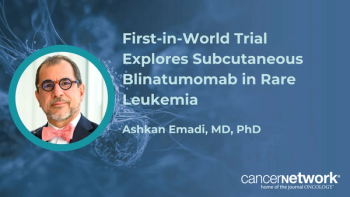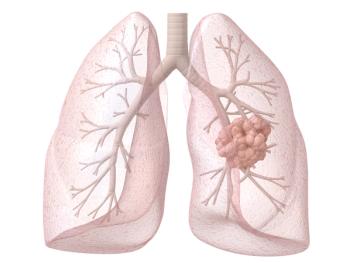
- ONCOLOGY Vol 16 No 3
- Volume 16
- Issue 3
Commentary on Abstract #2540
Several reports have focused on other interesting monoclonal antibodies under evaluation in patients with lymphoid malignancies. Apolizumab (Hu1D10) is a humanized monoclonal antibody directed at an human leukocyte antigen epitope on malignant and benign B cells. The expression is somewhat variable by disease, but cells from about 40% to 60% of patients are positive for the 1D10 antigen.
Several reports have focused on other interesting monoclonal antibodies under evaluation in patients with lymphoid malignancies. Apolizumab (Hu1D10) is a humanized monoclonal antibody directed at an human leukocyte antigen epitope on malignant and benign B cells. The expression is somewhat variable by disease, but cells from about 40% to 60% of patients are positive for the 1D10 antigen.
In the initial phase I trial by Link et al (Proc Am Soc Clin Oncol 19:24a[abstract 86], 2000), encouraging activity was noted, with four responses out of eight patients with follicular NHL. These data led to a follow-up phase II study evaluating two dose levels (abstract #2540) presented at the ASH meeting by Link et al. An analysis of the response data from this ongoing trial was somewhat disappointing. It is possible that the role of this antibody will be more important in combination with other agents. An ongoing phase I trial of apolizumab and rituximab is accruing at the National Cancer Institute.
Articles in this issue
almost 24 years ago
Single-Agent Rituximab in Early-Stage Chronic Lymphocytic Leukemiaalmost 24 years ago
Recruitment for Trial of Adjuvant Trastuzumab Under Wayalmost 24 years ago
Rituximab in the Treatment of Acquired Factor VIII Inhibitorsalmost 24 years ago
Support for New Medicare Pay Formulaalmost 24 years ago
Irinotecan-Containing Regimen Improves Survival in Small-Cell Lung CancerNewsletter
Stay up to date on recent advances in the multidisciplinary approach to cancer.












































